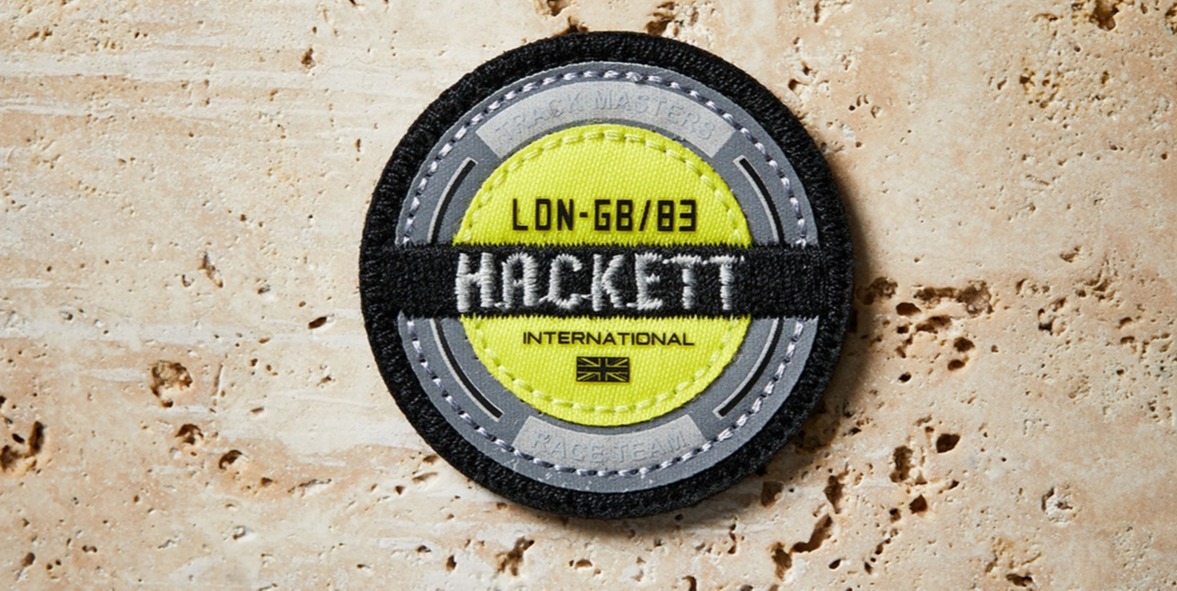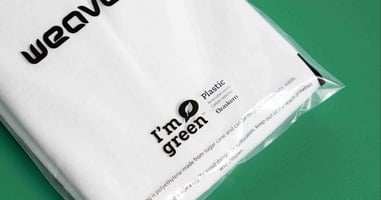How to Achieve Sustainable Packaging Standards Across an International Business
2 min read timeSustainability is on every organisation’s agenda. No more so than international names who are being...
Sustainability
6 Minute Read
Written by Weavabel, published 04/10/19 13:30

When we think of pollution and what’s disastrous for the environment, the fashion industry tends to fly under the radar. To some, it’s surprising that it ranks just below the oil industry as the second-largest polluter in the world. However, there are some green branding geniuses doing their part to positively impact the environment in the long-run.
To see how you can follow in their footsteps and switch to sustainable alternatives, check out the examples below.
People Tree’s story started in 1991 with a mission to produce ethical, sustainable and environmentally friendly clothing. Fast forward to 2019 and the brand has launched its debut ‘Our Blue Planet’ collection with BBC Earth. The aim is to highlight the importance of ocean conservation and was created with a strict environmental policy.
Here’s what it includes:
People Tree also has strict uses of cotton, denim, TENCEL and production methods. These examples also highlight the great strides the brand takes to be one of the best examples when it comes to green branding.
They even take environmental sustainability one step further as their labels are made from FSC-certified paper. People Tree Founder and CEO, Safia Minney, also featured in the Netflix film, The True Cost, which highlighted the effects of the global clothing industry on people and the planet.
Every collection from Thought Clothing embraces the concept of slow fashion. Their aim is to influence consumers to wear the garments time and time again. The brand works in a thoughtful way, using natural, organic and recycled fabrics. Although it takes more time to use sustainable fabrics, they see it as time well spent as it lowers the impact on the planet.
When Thought Clothing first started, its go-to fabric was hemp thanks to its irresistible, textural finish and the ability to soften each wear. Since then, the brand has adopted the innovative additions of TENCEL and modal which begin life as sustainably-grown trees.
Here are more of the fabrics Thought Clothing uses:
Every fabric used by Thought Clothing is approved, grown and woven with every effort to protect the planet. Even their dyes help protect the environment. They’re azo-free (which is a harmful carcinogen) and thanks to Oeko-Tex, the finishes are also gentle on the environment.
Amour Vert work every day to create a healthier planet for future generations. The brand is committed to making sustainable, versatile and thoughtfully-designed clothing that’s good for consumers and the planet. For a better idea of how determined Amour Vert is to creating a sustainable future, the brand name literally translates to ‘Green Love’ in French.
With every purchase of an Amour Vert tee, the brand plants a tree in North America. To date, Amour Vert has planted over 220,000 trees. They also produce their garments in limited quantities. It’s to ensure that the highest production standards are met and helps to eliminate excess waste.
What’s so unique about this green branding example is that they use signature fabrics by working directly with mills. It allows them to soft, beautiful, durable and sustainable fabrics. These include:
Amour Vert, Thought Clothing and People Tree are just three green branding geniuses that have paved the way for other fashion brands to follow. They’ve proven that great fashion and sustainability can coexist peacefully which is something every label can do.
For starters, it could be as simple as introducing an eco-friendly range to impress customers, meet their demands and play an influential role to help save the planet.
To help on this exciting journey and switch to green alternatives, we’ve created a free guide to help you make the transition. It outlines how you can work with an eco-friendly manufacturing and production process to achieve the best results.
The guide highlights plenty of key information, such as consumer trends, what the biggest fashion brands in the world are doing right now, how to make the transition and much more. To get your free copy, click on the link below.
Want to keep up to date with industry developments, trends, product launches and more? Sign up to our newsletter to get the latest delivered to your inbox.


